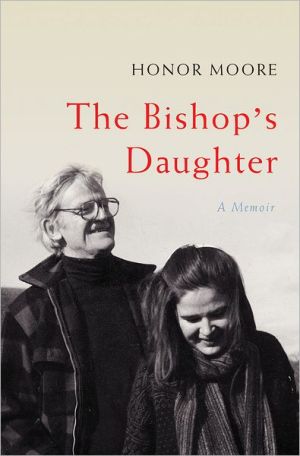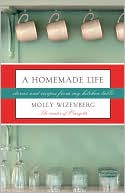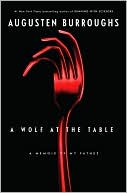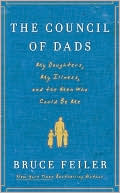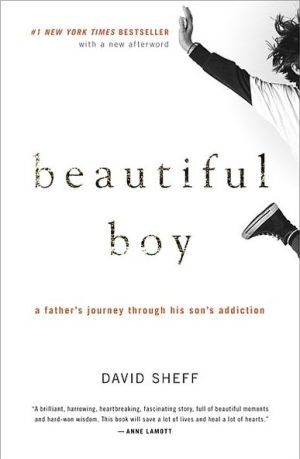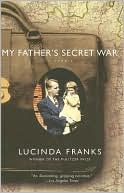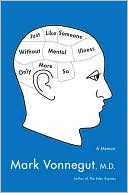The Bishop's Daughter: A Memoir
Paul Moore's vocation as an Episcopal priest took him—with his wife Jenny and a family that grew to nine children—from robber-baron wealth to work among the urban poor of postwar America, prominence as an activist bishop in Washington during the Johnson years, leadership in the civil rights and peace movements, and two decades as the bishop of New York. The Bishop's Daughter is a daughter's story of that complex, visionary man: a chronicle of her turbulent relationship with a father who...
Search in google:
"An unsparing portrait of a glamorous but elusive father and his daughter's search for the truth about his secret life."—Sylvia Nasar Publishers Weekly Having told the sad, extraordinary story of her maternal grandmother, the painter Margarett Sargent, in The White Blackbird (1996), Moore offers a painfully honest memoir of her father, Paul Moore (1919-2003), the Episcopal bishop of the diocese of New York from 1972 to 1989. Educated at St. Paul's and Yale, Paul distinguished himself in battle as a marine on Guadalcanal during WWII; fathered nine children by his first wife, the vivacious Jenny McKean; and became an activist in the liberal social movements of the 1950s and '60s. He also had numerous clandestine affairs with men. While Paul's bisexuality did little harm to his professional career, it took a heavy emotional toll on his family, notably Jenny, who up to her death from cancer at age 51 confided to only a few intimates the underlying cause of the unhappiness in her marriage. The author, a poet and playwright, draws on letters between her parents, the reminiscences of friends (including a male lover of her father's) and her own experiences as her parents' oldest child coming of age in the '60s to create an indelible portrait of a charismatic religious leader who could be insensitive or even cruel to those who loved him most. At the dramatic heart of this engrossing family chronicle is the ultimately triumphant struggle of the daughter, who suffered her own sexual confusion and years of therapy, to reconstruct her father's personal history in an effort to understand his behavior and thereby forgive. (May) Copyright © Reed Business Information, a division of Reed Elsevier Inc. All rights reserved.
Prologue 9Pt. I Father1 Prophet's Chamber 212 Guadalcanal 343 Inseparable 474 Holy Matrimony 615 Firstborn 776 Becoming a Priest 927 My Jersey City 1058 Four-in-Hand 1199 The Oldest 135Pt. II Daughter10 Light and Dark 15511 Thou Shalt Not 16912 In Public 18713 Eager 20214 The Family Cracks Open 21715 Killing Me Softly 23116 Art and Life 247Pt. III Revelations17 Women and the Kingdom 26318 Discovery 28119 Wayfarers 29820 Andrew Verver 31421 Complexity 32822 Footsteps 341A Note on Sources 359Photographs 363
\ Publishers WeeklyHaving told the sad, extraordinary story of her maternal grandmother, the painter Margarett Sargent, in The White Blackbird (1996), Moore offers a painfully honest memoir of her father, Paul Moore (1919-2003), the Episcopal bishop of the diocese of New York from 1972 to 1989. Educated at St. Paul's and Yale, Paul distinguished himself in battle as a marine on Guadalcanal during WWII; fathered nine children by his first wife, the vivacious Jenny McKean; and became an activist in the liberal social movements of the 1950s and '60s. He also had numerous clandestine affairs with men. While Paul's bisexuality did little harm to his professional career, it took a heavy emotional toll on his family, notably Jenny, who up to her death from cancer at age 51 confided to only a few intimates the underlying cause of the unhappiness in her marriage. The author, a poet and playwright, draws on letters between her parents, the reminiscences of friends (including a male lover of her father's) and her own experiences as her parents' oldest child coming of age in the '60s to create an indelible portrait of a charismatic religious leader who could be insensitive or even cruel to those who loved him most. At the dramatic heart of this engrossing family chronicle is the ultimately triumphant struggle of the daughter, who suffered her own sexual confusion and years of therapy, to reconstruct her father's personal history in an effort to understand his behavior and thereby forgive. (May)\ Copyright © Reed Business Information, a division of Reed Elsevier Inc. All rights reserved.\ \ \ \ \ Library JournalPoet Moore's (writing, New Sch. & Columbia Univ.) 1996 memoir White Blackbird focused on her painter grandmother, Margarett Sargent. This one probes her relationship with her father, Episcopal Bishop Paul Moore (1919-2003). Often controversial, Bishop Moore embraced social causes such as poverty, racism, and gay rights and ministered in dioceses of Jersey City, Indianapolis, Washington, DC, and New York. In these 22 chapters, each preceded by a black-and-white family photo, the author struggles to come to terms with her relationship with her parents as well as with her bisexuality and that of her father. Skillfully interweaving contemporary news into the text, she crafts her memories and narrative from family correspondence and diaries, personal conversations, family scrapbooks, and her parents' own published writing. Religious elements appear as stage settings, which make the book more of a literary execution than a deep probing of her father's faith. Of selective interest for literary and biography collections. [See Prepub Alert, LJ1/08.]\ —Anna M. Donnelly\ \ \ \ Kirkus ReviewsA powerful memoir of life with an accomplished but secretly tortured father. Born to wealth and privilege, a graduate of the country's finest schools and a decorated veteran of Guadalcanal, Paul Moore, the author's father, chose the life of a priest in the Episcopal Church. From postings in Jersey City, Indianapolis and Washington, D.C., he became a leading voice for social justice and rose to minor fame as the Bishop of New York. For his oldest daughter, he remained an oddly remote yet dazzling figure. Only in the last years of his life did she learn of his secret homosexuality, a discovery that explained so much about him, her frequently depressed, occasionally violent mother and the author herself. Poet and playwright Moore (Writing/The New School and Columbia Univ.; Red Shoes: Poems, 2005, etc.), an attentive, sensitive narrator, performs an intensive, sometimes painful genealogical dig on her parents' backgrounds, their courtship and marriage, their work together in the church and their private lives, including many interviews with friends and male and female lovers of her father. She's equally forthright about herself, charting her shifting comprehension of the meaning of her family life, of the larger social movements her parents helped promote and of her own artistic development and troubled sexual progress. In the end she remains too admiring of her father, ascribing to him a kind of martyrdom, conflating (as he apparently did) his spirituality with his sexuality-perhaps a forgivable assessment given its harrowing cost. In 1977 Ms. assigned the still-young Moore to interview her father, then under attack for his ordination of Ellen Marie Barrett, an acknowledged lesbian. Themagazine rejected the piece as "too general." No such objection here. A moving prose poem about what it means to be spiritual, sexual and human.\ \
